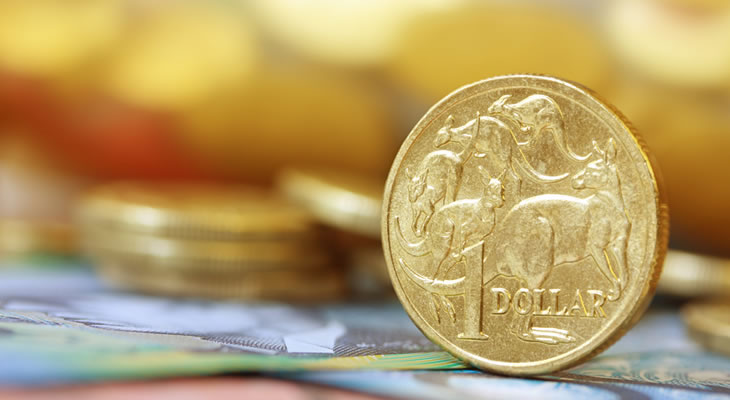UPDATE
The Pound Sterling to Australian Dollar (GBP/AUD) exchange rate climbed by around 0.3% on Tuesday morning.
Despite the fact that the Shanghai Composite Index ended the Asian session slightly up, demand for the Australian Dollar waned as a drop in global stock values weighed on market sentiment. Aiding the ‘Aussie’ (AUD) depreciation was weekly consumer confidence which ticked slightly lower in the week ending January 10th. The Pound, meanwhile, softened versus many of its rivals after sales data missed estimates.
The Pound Sterling to Australian Dollar (GBP/AUD) exchange rate is currently trending in the region of 2.0864.
Yesterday…
GBP/AUD Conversion Rate Predicted to Decline Even after Lloyds Regional PMI Advances
The Pound Sterling to Australian Dollar (GBP/AUD) exchange rate softened by around -0.4% on Monday afternoon.
With the exception of the Australian Dollar and the Chinese Yuan, the Pound Sterling advanced versus all of its most traded currency rivals during Monday’s European session. The appreciation was initiated by correctional trading as investors took advantage of the comparatively low Sterling trade weighting. Additional gains can be linked to a report from Lloyds Bank which showed that business output in England and Wales increased in December, with Welsh business output growth climbing to a fresh six-month high.
Tim Hinton, Managing Director, Mid-Markets and SME Banking, Lloyds Banking Group said: ‘The UK economy ended 2015 on a relatively positive note, with December seeing the continuation of solid growth of both business activity and employment. The global economy is looking fragile and full of uncertainty, but with new business orders on the rise and inflationary pressures remaining largely subdued, growth prospects remain positive at the start of 2016.’
However, Sterling gains were pegged back a little after Citigroup Inc. Chief Economist Willem Buiter stated that there is a one-in-three chance that the UK will vote to leave the European Union. An exit would ‘be a disaster for Britain,’ said Buiter, who sees a 35 percent chance of this happening. ‘To discourage a repeat, the 27 remaining EU members would strike an extremely tough bargain with the UK it would be years of destructive uncertainty.’
The Pound Sterling to Australian Dollar (GBP/AUD) exchange rate is currently trending in the region of 2.0800.
AUD/GBP Conversion Rate Predicted to Tick Higher Despite Falling Chinese Stock Values
Although there are a number of headwinds for the Australian Dollar on Monday, the South Pacific asset advanced versus most of its currency rivals. The appreciation came even after the Shanghai Composite Index ended the Asian session over 5.3% down, and December’s ANZ Job Advertisements declined by -0.1% on the month. One of the major factors supporting demand for the ‘Aussie’ (AUD) on Monday is the appreciation of the Chinese Yuan after the People’s Bank of China (PBoC) set the reference rate at 6.5636, ending an eight-day streak of devaluation. A senior markets analyst at ThinkForex, Matt Simpson, said the yuan fix came as a bit of a surprise. ‘The markets were expecting a bit little more doom and gloom there.’
The comparative weakness of the US Dollar is also supporting demand for the ‘Aussie’, and Matt Simpson stated that if Australia’s employment figures prove strong on Thursday the Oceanic asset is likely to extend gains. ‘As long as nothing terrible happens in China and you get some good unemployment reads, and then nothing too strong for the US Dollar, which is looking pretty weak at the moment, then it’s not impossible to get up to US71¢.’
The Pound Sterling to Australian Dollar (GBP/AUD) exchange rate dropped to a low of 2.0725 during Monday’s European session.
Pound Sterling to Australian Dollar (GBP/AUD) Exchange Rate Forecast: UK Retail Sales Data to Provoke Volatility
Given the absence of further economic data until the Australasian session, the Pound Sterling to Australian Dollar (GBP/AUD) exchange rate is likely to hold losses for the remainder of Monday’s European session. The weekly Australian Consumer Confidence Index is unlikely to be hugely impactful with trader focus dominated by proceedings in the world’s second-largest economy. Similarly, Australia’s credit card data is unlikely to influence significant GBP/AUD volatility, but the UK’s BRC Like-For-Like Sales should have a greater impact.
During Tuesday’s European session the pairing is likely to see significant changes in response to a speech from BoE Governor Mark Carney. British Industrial Production, Manufacturing Production and the NIESR Gross Domestic Product Estimate should all be of interest to those trading with the British Pound tomorrow.
The Pound Sterling to Australian Dollar (GBP/AUD) exchange rate climbed to a high of 2.0944 during Monday’s European session.


Comments are closed.